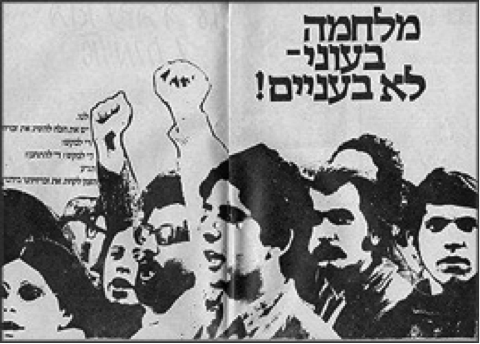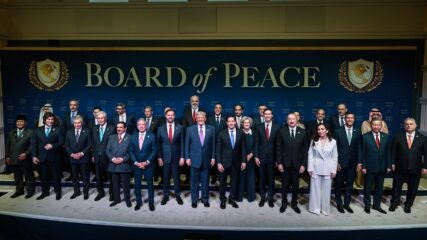April 13, 1971
Leaders of the Israeli Black Panther movement, which emerged in the early 1970s to protest the social injustices felt by Mizrahi Jews, meet with Prime Minister Golda Meir to air grievances felt by many Jews from North Africa, the former Ottoman Empire and other Muslim-majority lands south and east of Israel.
The Black Panthers have generated widespread support with demonstrations highlighting what they view as discriminatory policies against them and for Ashkenazi immigrants. During the first decade of the state, as Israel absorbed almost a million Jewish immigrants, a disparity emerged between the treatment of those coming from Europe and the West and those who came from North Africa and the Middle East. Mizrahi immigrants were most often settled in transitional tent camps before housing could be built for them, while most often Ashkenazi immigrants were given preferred housing. Mizrahim were largely excluded from Israeli politics, senior public services and higher education.
The Black Panthers took their name from the African American movement active in the United States from the mid-1960s. Saadia Marciano, who was born in Morocco and was one of the founders of the Panthers, said the group thought the name would scare Meir.
The group secures the meeting with Meir by threatening a hunger strike at the Western Wall.
During the meeting, according to the Israel State Archives, Panthers leader Reuven Aberjil tells the prime minister: “There are many obstacles for people like me. They don’t have the opportunity to rise [socio-economically]. We are not seeking welfare funds or charity. We are healthy and can work, so all we want is the opportunity to advance ourselves. We are not here to talk about my own employment. If it was just my problem, it would have been wonderful. But there’s the problem of the Sephardim or Mizrahim who form 65% of the country’s population. The situation of that group is poor, and many live under the poverty line, earning less than 400 liras a month. We are talking about families with 10 or more children. What they earn isn’t enough to live off. I wandered in the neighborhoods and saw it with my own eyes.”
One month later, 6,000 Black Panthers and their supporters hold a massive demonstration in Jerusalem. After the protesters clash with police, Meir is quoted as saying the Panthers “are not nice people.”
That comment sticks with her and the Labor Party for years, exemplifying for many the Ashkenazi establishment’s elitist approach toward the Mizrahi. That disenchantment plays out in the May 1977 Knesset election when Menachem Begin’s Likud takes power for the first time on the strength of a large percentage of the Mizrahi vote.









